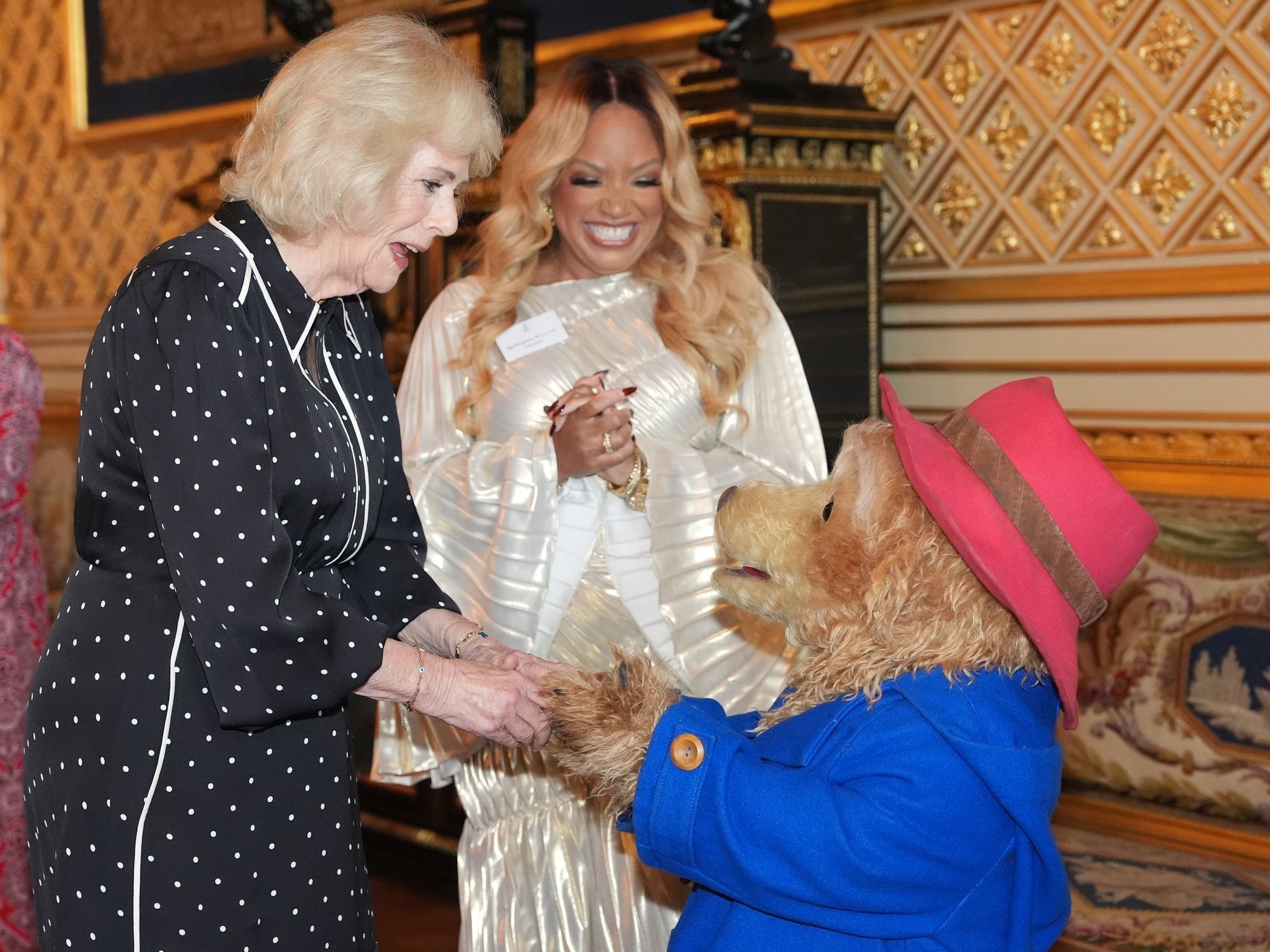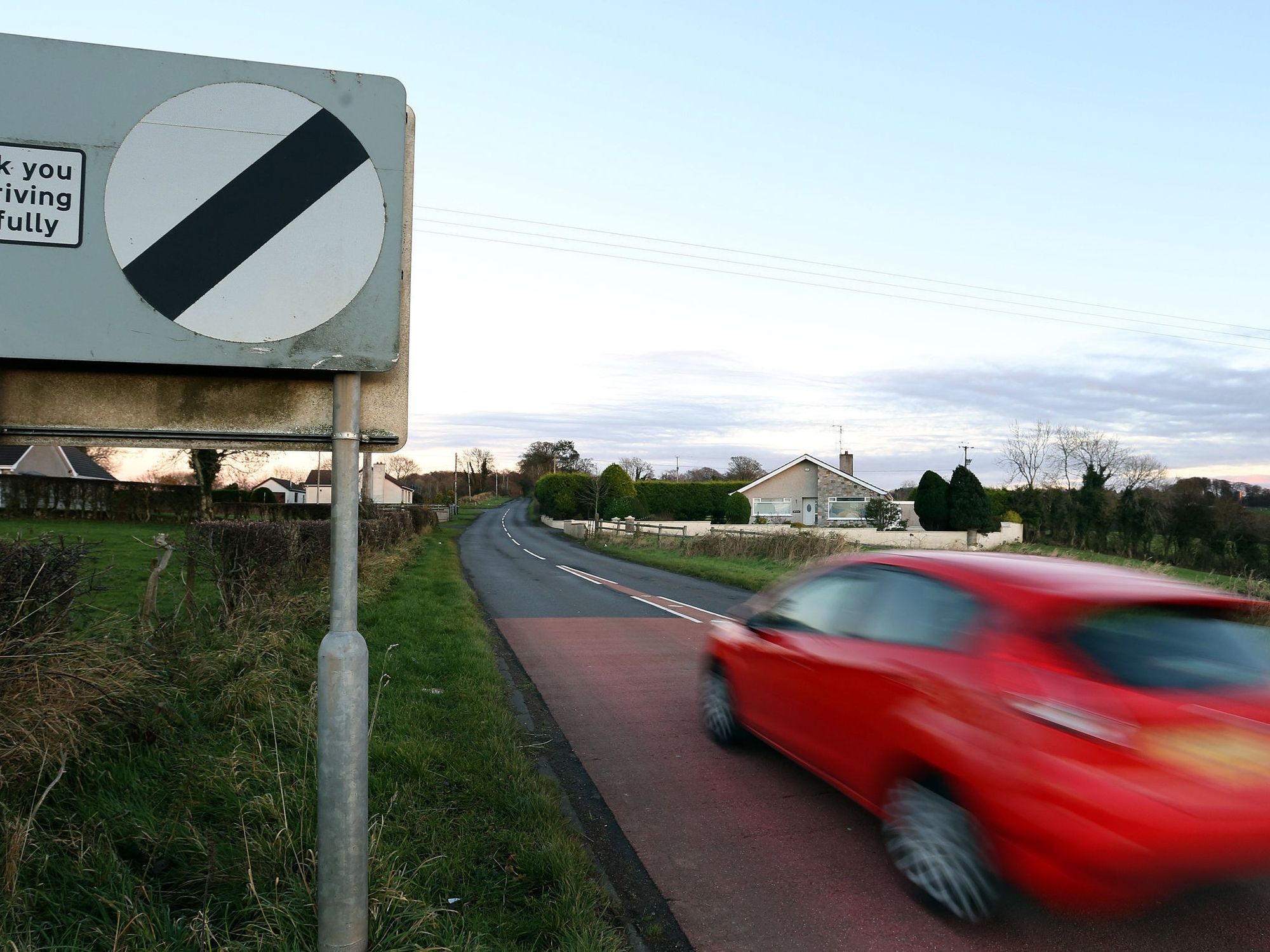Inside the SNP’s ‘wipeout’ as nationalist ‘civil war’ leaves IndyRef2 threat hanging by thread
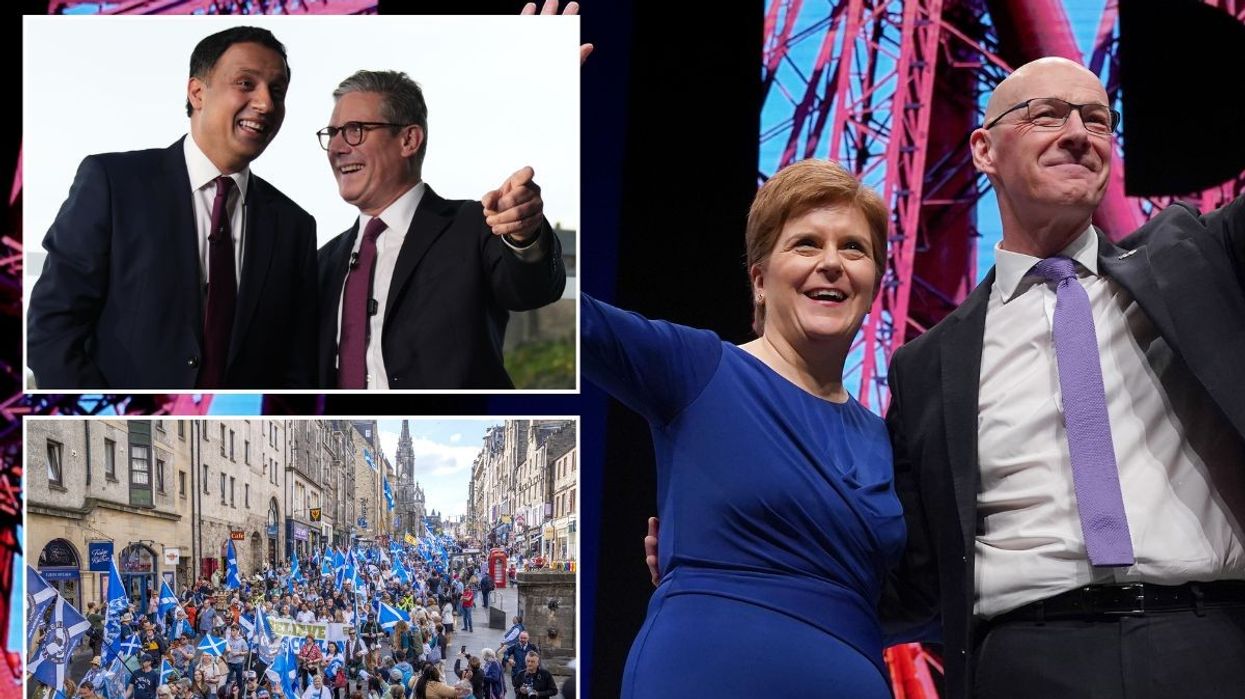
Inside the SNP’s ‘wipeout’ as nationalist ‘civil war’ leaves IndyRef2 threat hanging by thread
|PA

GB News reporter Jack Walters looks into how last week's result could impact calls for a second referendum on Scottish independence
Don't Miss
Most Read
"Any notion of IndyRef2 is absolutely dead," former Tory MP Ross Thomsom told GB News.
However, Unionists remain divided on the state of the pro-independence movement and how best to put the aftertaste of the 2014 'Yes' campaign back in its box.
The former Aberdeen South MP, who quit the Commons before SNP leader Stephen Flynn picked up his North Eastern seat in 2019, is among those more confident about the future of Scotland in the Union.
He argued: "It's quite the wipeout for the SNP. It's definitely a shock to their system to receive such a devastating verdict from the Scottish people.
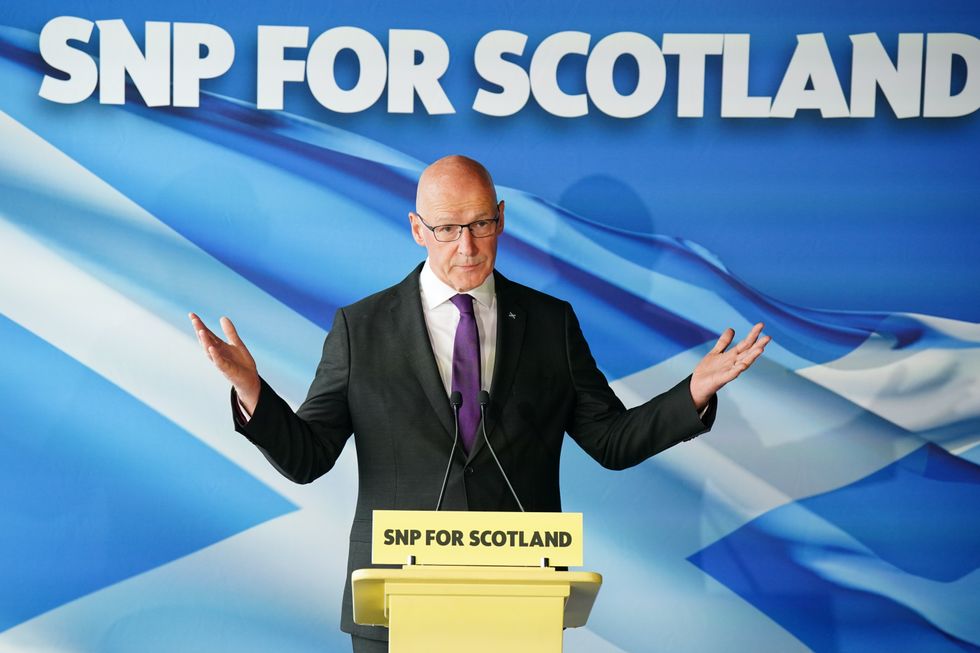
Scottish First Minister John Swinney speaking to the media at The Port of Leith Distillery in Edinburgh
|PA
"People have become tired of poor standards and poor delivery of public services. They expect better.
"It's the same in England with voters becoming increasingly frustrated with NHS waiting times and people feeling things just weren't getting better.
"And there have been a lot of scandals in the SNP. They've changed First Ministers many times. Sturgeon stepped down and then her and her husband were arrested with the scandal around alleged fraud.
"Hapless Humza later blew up his time as First Minister by ditching the Greens. He also failed to do anything good in office. We eventually end up with Swinney, who many saw as a safer pair of hands, but he is incredibly dull to voters.
"Punishment even came from SNP voters over the failure to progress on anything to do with independence."
Despite soaring to 56 out of 59 seats just one year after Scotland voted against independence, SNP support slumped from 48 to just nine seats north of the border.
The SNP lost its decade-long status as Scotland's largest party as Sir Keir Starmer's Labour Party picked up 37 seats, having been reduced to just one MP north of the border in 2019.
The change marks a seismic shift in a post-referendum Scotland, with the SNP suffering its worst result since 2010 and Labour's Central Belt gains propelling it to heights last experienced during Gordon Brown's departing election.
However, opinion polls on the question of Scottish independence remain fairly similar to those before the SNP's demise last Thursday.
Redfield & Wilton found 48 per cent of Scots favoured 'No', with 46 per cent supporting independence.
LATEST DEVELOPMENTS: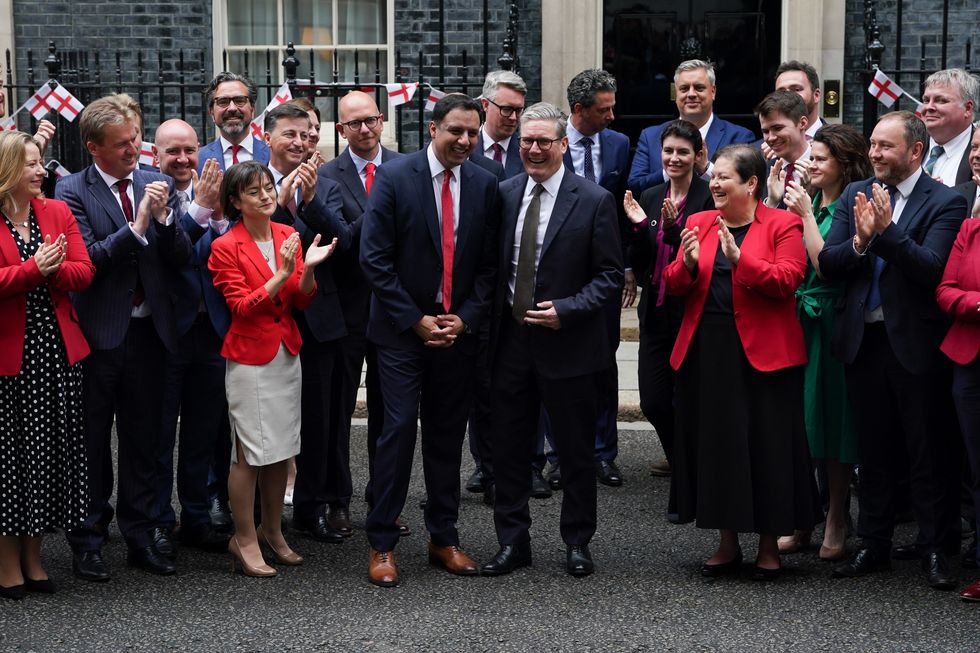
Prime Minister Sir Keir Starmer (centre right) and Scottish Labour leader Anas Sarwar (centre left) pose for a photograph with the new intake of Scottish Labour MPs
|PA
Ex-Labour MP Tom Harris, who served in Tony Blair's Government while representing Glasgow South in the Commons, warned the electoral shift is more of a punishment of the party than the principle.
Harris told GB News: "Calls for an IndyRef2 are never dead, unfortunately. But it's taken a hell of a body blow."
He added: "It's complicated because demands for a referendum and independence aren't going to go away. It was there in the 1990s before devolution.
"The SNP are in trouble at the moment, they're on the backfoot and it's going to take them some time to regroup. But it would be very naive to think that they're never going to be a threat once again to the Union."
However, Thomsom and Harris appeared to agree that the SNP's plan for independence had been rejected by the Scottish voters after it featured in the top line of the nationalist party's manifesto.
Both former MPs also endorsed the use of tactical voting to topple as many SNP MPs as possible.
"Scottish voters have become very savvy when it comes to tactical voting since the 2014 referendum," Thomsom claimed.
Harris added: "It was a triumph for the grassroots anti-Nationalist organisations after the 2014 referendum."
Despite raking in the smallest Scottish vote share of its history, the Conservative Party managed to avoid a 1997-style wipeout by holding five seats and losing just one.
Two gains for the Liberal Democrats also ensured the Tory Party not only lost its place as the leading opposition to the SNP in Westminster but also slipped to become Scotland's fourth-largest party.
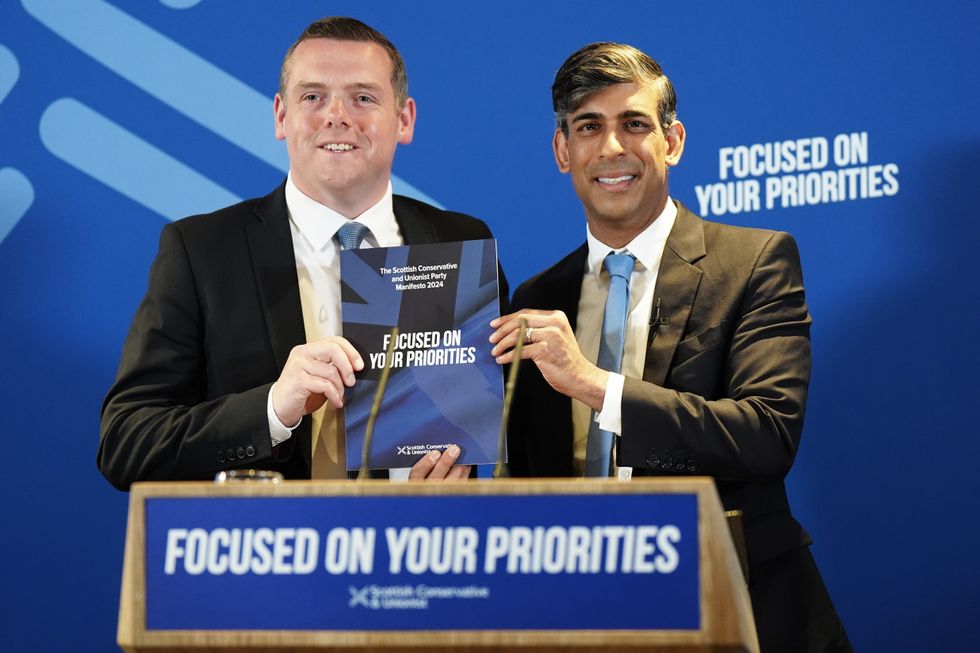
Scottish Conservative leader Douglas Ross (left) and former Prime Minister Rishi Sunak during the launch of the Scottish Conservative Party's General Election manifesto at the Apex Grassmarket Hotel in Edinburgh
|PA
Offering some advice to his former Conservative colleagues, Thomsom said: "The Scottish Conservatives have to adjust to the new landscape.
"We were very much warning people about the risk of voting SNP and spent much of our time highlighting the opportunity to kill off independence. That has happened. Now is the time to make the case for a bold conservative policy agenda."
He added: "It was more important to have a Unionist win, whatever their stripe, than a Nationalist. That will still be a feature in 2026. And Scottish Tories also need to win back the trust of voters who switched to Reform."
Scotland, unlike England and Wales, voted to keep the UK in the EU and was not a massive stomping ground for Ukip or the Brexit Party.
However, Reform UK picked up 167,979 votes, significantly more than either the Scottish Green Party or Alba.
Thomsom suggested the populist party cost Douglas Ross clinging onto Aberdeenshire North & Moray East.
The outgoing Scottish Tory leader trailed republican-supporting Seamus Logan by 942 votes, with Reform UK's Jo Hart winning over 5,562 constituents.
However, Harris and Thomsom were far more split on how Labour should respond to the result.
"Keir Starmer doesn't have to entertain the notion of another referendum," Thomsom said. "He doesn't have to take any queues from the SNP. Labour's contingent of Scottish MPs means he doesn't have to dance to any tune the SNP is playing."
However, Harris pointed out: "Labour sees itself as the party of devolution. They will bend over backwards to work with the Scottish Government. Polls suggest Scottish people want that. But it was Labour who set up devolution and gave new tranches of power to Holyrood in the hope that would abate Scots' appetite for independence. That didn't work; it just fed the beast.
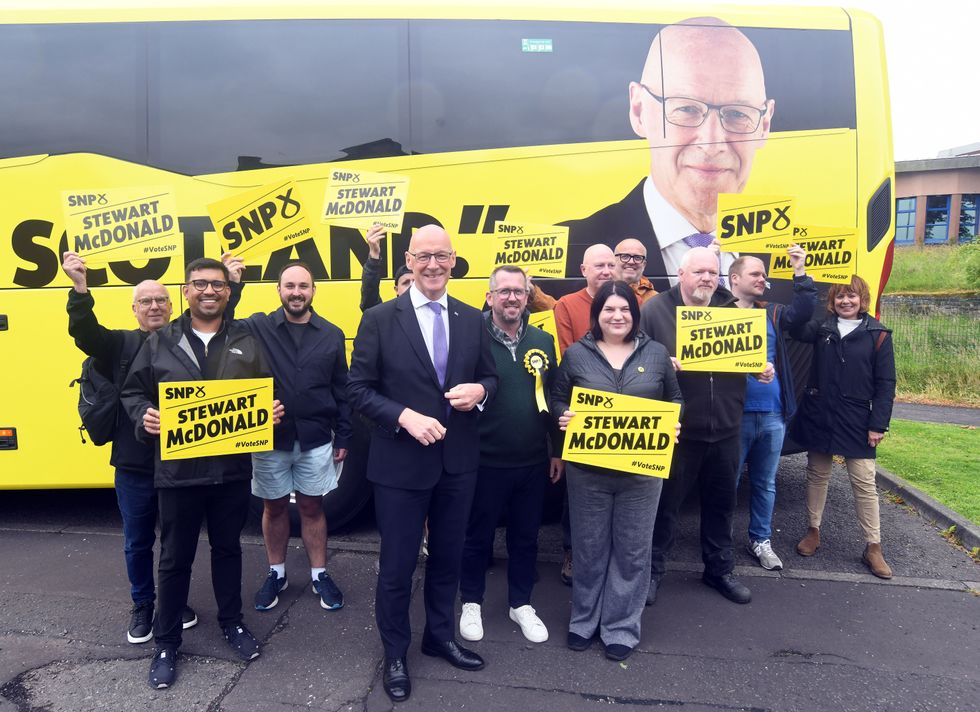
Scottish First Minister and SNP leader John Swinney (centre left) and SNP parliamentary candidate for Glasgow South, Stewart McDonald
|PA
"They're most likely to beat the SNP but most likely to be vulnerable to the pressures of the devolutionists. At the moment, they're resisting that but they have the worst record of conceding to Nationalist over the years."
He added: "There has got to be change in Scotland. Scottish voters have, for the time being, lent support to the Unionist parties, particularly Labour.
"There has got to be some practical and visible changes. How that presents itself is up for debate but it could potentially come in welfare changes, work regulations or new jobs from GB Energy.
"Unionists need to be able to point at it and say this only happened because you got rid of the SNP. If in 2026 they can't do that, the SNP will quite legitimately say, a vote for Unionists is a wasted vote."
Harris concluded: "Every party in the country is on parole, looking at the results from last week. The threat of independence is still there because Scots are very willing to switch their votes if they want to punish a party or are not happy with what a party does.
"This is not a return to the status quo. This is just a new temporary phase in Scottish politics. It is for the Labour Party to convince voters that it should be permanent but I'm not sure they're convinced yet."
The pair, who were also on the same side in the 2016 Brexit referendum, also seemed to differ on how the SNP could rebuild from last Thursday.
"They haven't got a long time to rebuild," Thomsom claimed. "The SNP will probably wait for five-years for another Westminster election but they're the party of government in Scotland.
"There's only two years and that doesn't give them much time to build the coalition who had voted for them, which included their pro-independence base and No voters who saw them as competent and trustworthy.
"But that has been blown out of the water. The trust has gone, especially with issues surrounding the SNP's scandal and the civil war that happened as a result."
However, Harris argued: "The SNP have been remarkably resilient in terms of internal discipline over the years. That might be about to break. Lots of MPs are asking who is to blame but how many of those 39 MPs will now hope to stand for Holyrood.
"A lot of SNP MSPs will be nervous about challenges from high-profile MPs. You might see some quite bitter internal struggles just at a very practical level."
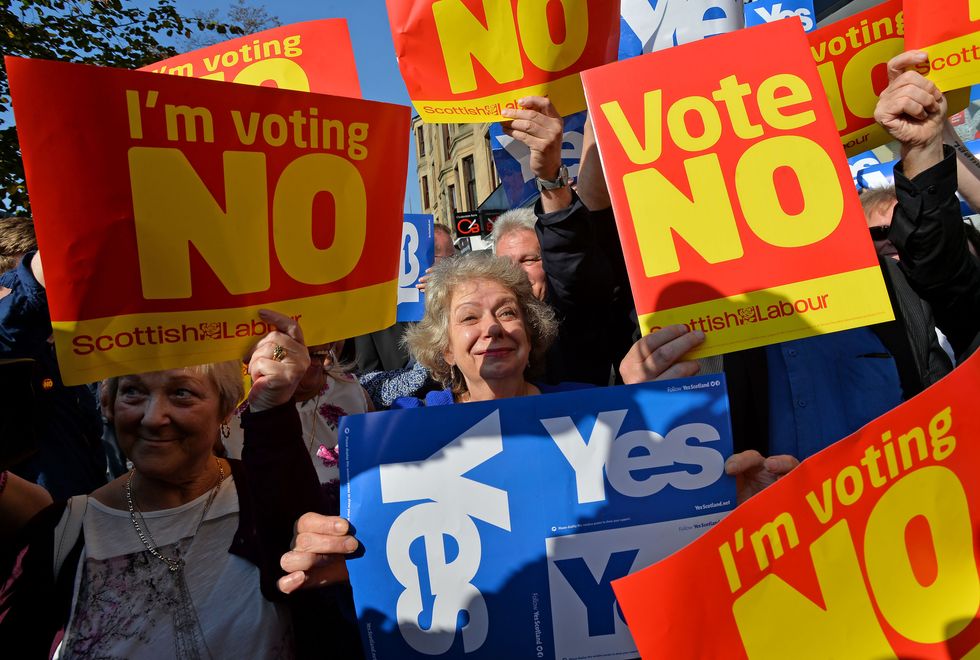
"Yes" and "No" voters protest as John Prescott and Alistair Darling join the Scottish Labour Battle Bus on Rutherglen main street on September 10, 2014
|GETTY
"It is difficult to tell if that will result in a schism or defections to Alba. Their resilience has been incredibly frustrating."
Echoing concerns of further fragmentation ahead of 2026, Thomsom added: "The SNP are worried about 2026. Some of the MPs who lost their seats have already spoken about Swinney making way for Flynn or Forbes. I don't know how that will work. Who would be in charge, Flynn in Westminster or Swinney as First Minister? And Forbes loses any support from the Greens but she might win a few more votes from the electorate."
Despite including former First Minister Alex Salmond, the Alba Party struggled on July 4.
Alba stood in 19 constituencies and received just 11,784 votes, with SNP defectors Neale Hanvey and Kenny MacAskill missing out on returning to the House of Commons.
However, the SNP splitters were able to exert pressure on the SNP in Holyrood as Ash Regan sent ex-First Minister Humza Yousaf an ultimatum ahead of his eventual resignation.
Hanvey previously stressed it was not Alba's intention to pose a threat to the SNP, instead highlighting how two pro-independence parties could drive a super-majority in Holyrood.
Notwithstanding lengthy concerns about Nicola Sturgeon’s pursuit of woke gender ideology, the former Kirkcaldy & Cowdenbeath MP is far less complimentary of his former SNP colleagues now.
Speaking to GB News, Hanvey said: "If the SNP is the only vehicle to independence then it is deeply damaging. If you take it through the wider perspective of the health of the independence movement and the appetite for independence then we are in pretty good shape.
"The vehicle that was supposed to be making progress has utterly failed. It has utterly failed because since 2016 the Scottish Government has shifted the focus away from the important issues - health, education, policing - and focused on utterly niche issues that have driven people away, particularly on trans issues."
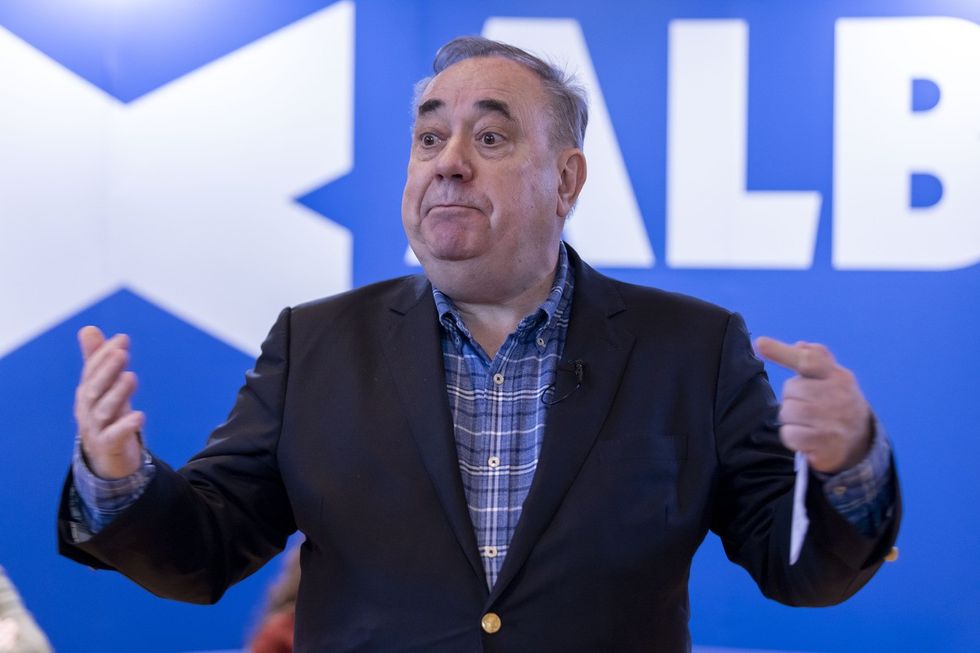
Alba Party leader Alex Salmond
|PA
Hanvey, who finished seventh in Kirkcaldy & Cowdenbeath with just 1,132 votes as Labour’s Melanie Ward won the seat, added: "The independence movement can either shrug its shoulders and give in or something new needs to emerge from the ashes of the SNP."
The ex-SNP MP revealed Alba is now focusing its efforts on the Scottish Parliament election of 2026, arguing: "What we cannot do is allow the cause of independence to fall by the wayside because the SNP have decided to work with Labour and take independence off the table."
Taking aim at Sturgeon, Hanvey added: "I would divide the SNP's time in Government into two halves.
"From 2007 to 2014, when they went from a minority administration to a majority in an electoral system designed to prevent that, they delivered confident governance and the result of that was support surging and a massive increase in membership.
"From 2016 onwards, the SNP had inept management. Sturgeon chose to use the support she garnered on the back of Alex's achievements and on support for independence to pursue other policy issues that she didn't have a mandate for. That's why a number of us spoke out."
He concluded: "The SNP would need an enormous clear-out. I don't think the current SNP leadership will be capable of delivering that. And I certainly don't think shipping the people who I had the misfortune to be elected with in the SNP group, beyond a handful, will do much either.
"It's very hard for me to see anyone in the current Holyrood group who would have the courage, intellect or ability to make the much-needed change. There are perhaps some who could do it who aren't in Holyrood or perhaps don't have the appetite to take on something so massive."
However, the 59-year-old also appeared disappointed about Reform UK receiving more media coverage than Alba north of the border.
Following last Thursday's election, the populist party won five seats in Westminster after receiving over four million votes across Great Britain.






